
Túsztárgyaló

Misi (öreg)
A story about a boy and a girl in a mental hospital.

The Buharovs, as the harbingers of a supra-human world, blend their instinctive cosmos with a kind of quiet poetry to lead the viewer into the Land of Warm Waters and onwards to new dimensions of storytelling.

Tanácsos

Károly
Gergő’s mother is obsessed with having a grandchild. She has a serious heart disease and has only days left to live. To give his mum some joy during her final hours, Gergő asks his neighbour Saci, who is five months pregnant, to visit his mother in hospital with him and tell her that she is carrying his child. It all goes smoothly, but a new heart arrives, and his mum is operated. Therefore, Gergő and Saci are forced to play the roles of the loving couple.
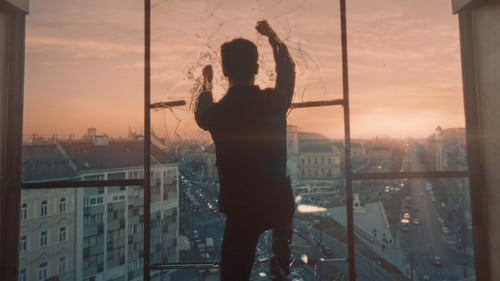
László
뒷돈을 받으며 수용소에서 난민을 빼내주던 부패한 의사 '스턴'. 어느 날, 부상을 당한 시리안 소년 '아리안'에게 중력을 거스르는 특별한 힘이 있다는 것을 알게 된다. '스턴'은 국경에서 헤어진 아버지를 찾아주겠다고 돕는 척 하며 '아리안'의 신비한 능력을 자신의 돈벌이에 이용하는데…
과연 소년은 인생에 희망을 가져다 줄 천사일까? 아니면 그를 추락시킬 악마일까?

Pócs Gábor
Drop dead please! Following the sudden death of a mysterious engine driver in his sixties, the Wife, the Lover, her illegitimate Daughter and an increasing number of shady characters from his spurious past want to know the true identity of the man they loved. They are dying to know which of them was really loved by him, and where he has hidden the fantastic fruit of his double life. In their deadly struggle, our heroes find themselves in the center of a satirical crime comedy, the sinful roots of which stretch back to the eighties, the closing decade of the socialist era.
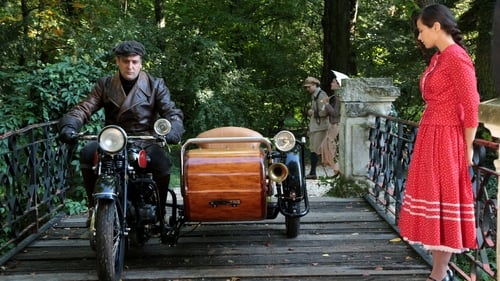
Jóska apja

Andor
Andor Czettl, in his early sixties, visits the secret service archives one day to read into the reports about himself and discovers a shocking fact. His very best friend János Pásztor was an informer, spying on him and writing reports about him for decades. Sára Cserhalmi's first feature focuses not so much on the actual problem of informing and betrayal as on the contradictory relationship of the two protagonists. It avoids any final judgments. First and foremost, it seeks answers to questions like how an informer can live in our present times and how the one being reported on can cope with this state. Can a close friendship that began decades ago last if such betrayal comes to light? How can someone live and cope with this fact?
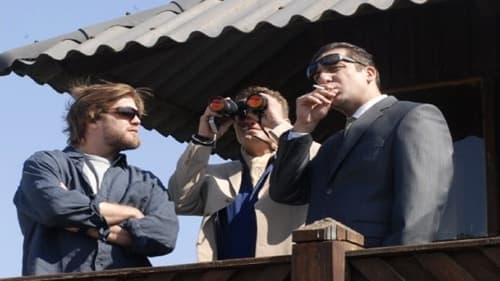
Bencze Gábor
Small-town politics (corruption etc.) in Hungary.
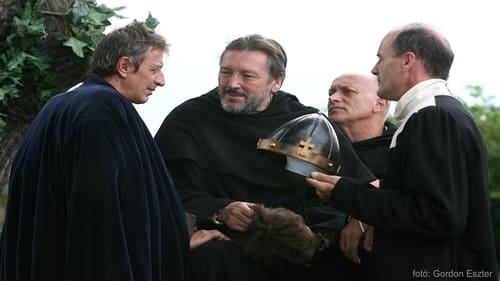
Kinizsi 1 / Mihály Szilágyi
Concerning the Mátyás era in Hungarian history, during the reign of Matthias Corvinus (1443–1490), the film focuses on three eras of the king's life: the young Mátyás fights for the throne, the older Mátyás as king, and the fate of the royal crown and the royal heir after his death.

Kinizsi 1. / Mihály Szilágyi
Concerning the Mátyás era in Hungarian history, during the reign of Matthias Corvinus (1443–1490), the film focuses on three eras of the king's life: the young Mátyás fights for the throne, the older Mátyás as king, and the fate of the royal crown and the royal heir after his death.

Uncle Faragó
Péter, a literary critic, is tasked by the secret police to persuade Social Democratic politician, Anna Kéthly, who has been living in exile for decades, to return home.

Lajos
The aging Eszter clarify outstanding relationship.

Jablonczay Kálmán
In the second half of the 1800s, the daughter of a Debrecen family marries a landowner, Kálmán Jablonczay. The couple move to the husband's castle. The marriage starts off happily but the new wife, Mária Rickl, soon finds herself at odds with the gentry lifestyle, her husband and her father-in-law...
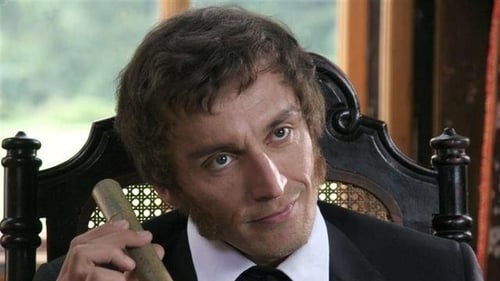
Count Tarnai
1839. The discontented noblemen assemble at the country estate of count Gábor Falussy, on the pretext of a boar hunt. Also an English engineer arrives for the sake of constructing the railway line leading up to the count’s quarry.

Misu

Zoltán
Two stories running in parallel: In one, a model is surrounded by men wanting to use and abuse her though, without realizing it, she is protected by a strange tramp guardian angel. In the other, a blind goldsmith struggles to produce his latest commission in the midst of his alcoholism and depression. Both then descend further and further into their own personal hells until they finally re-find peace with themselves and then their stories briefly merge.

Doctor
One of the doyennes of Hungarian film deals with a dark period of national history: the Soviet regime in Hungary. She portrays it through the fate of the former prime minister and national hero, Imre Nagy. The script is based on the diary written by Imre Nagy, and the memories of his daughter, Erzsébet Nagy, as well as authentic documents and records.
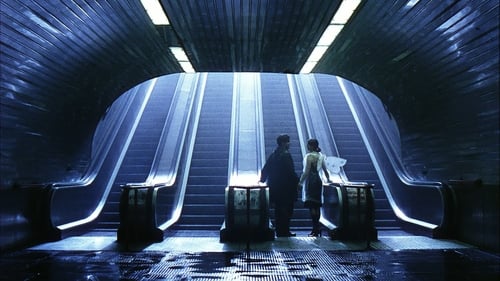
Big Boss
20대의 벌추는 직장인 지하철에서 겪는 문제들로 골머리를 앓는다. 가지각색의 에피소드 중에는 스스로 승객해방연대의 일원이라고 주장하고 다니는 로드러너와 항상 테디 베어 옷을 입고 다니지만 벌추의 마음을 단번에 빼앗아버린 소피가 등장한다. 그러나 이들 사이에 어두운 그림자가 끼어들기 시작하고, 그들을 기다리는 것은 선과 악의 마지막 대결이다. 부다페스트의 언저리에서의 삶을 빠른 속도로 유머러스하게 보여주는 이 작품은 카메라 앵글 속에 현실에서 도망치려고만 하는 부적응자들에 대한 은유를 숨겨놓는다.
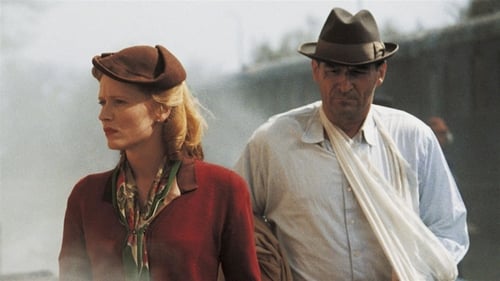
Joza
1940년대 나치 점령 하의 체코를 무대로 한 로맨스 드라마. 의학도 엘리스카는 시골 병원에서 간호사로 일하고 있다. 그녀의 애인은 준수하고 성공한 외과의사 리차드로, 두 연인은 함께 일하면서 비밀 레지스탕스의 일원으로 활동한다. 그러던 어느 날, 그들 조직은 게슈타포에 의해 발각되고 조직원 모두는 죽음에 이른다. 리차드는 도망쳐 버리고, 엘리카는 홀로 안전한 장소에 숨어들어야 한다. 엘리카에게 목숨을 빚졌던 환자 조자는 150년의 광대한 자연을 품고 있는 자신의 거주지로 엘리카를 데려가고, 그들은 부부 행세를 한다.

Detective Sebők is shot at by a fleeing criminal and then pushed off the road. Sebők breaks his leg. Left by his wife, pensioned by his boss on the basis of false reports, he has a clash with banker Gömöri at the colonel’s party.

Miklós Wesselényi
This epic story takes place between 1820 and 1860 during the Habsburg Monarchy, and portrays the life one of the greatest Hungarian aristocrats - Count Széchenyi - who was born with extra-ordinary mental and spiritual talents. In the years following the fall of Napoleon the young count Széchenyi irresponsibly seduces his brother's wife, and the consequent scandal ruins his career as an army officer. After the sudden death of his humiliated lover Count Széchenyi drastically changes his character from that of a shallow young man into a responsible nobleman seeking to conquer his fate by creating great achievements in his remaining life.

The general
1942. Owing to a stolen mink coat, Süti, the young poet and journalist, gets acquainted with Katalin, the idolated singer. Before being drafted to labour service, he shows the actress the song he composed for her, entitled Smouldering Cigarette.

The sixteen year old Bea is on her way home from her sports class when a foreign long- vehicle stops by her and she is asked the way. A shove, the banging of the door, and the long-vehicle pulls away with its victim towards the South. Beas abductors rape her and sell her as a prostitute. She tries to escape, keeps leaving marks behind, hoping that her beloved father, Sándor, will find her.

Szipák Béla
The Witness (Hungarian: A tanú, also known as Without A Trace), is a 1969 Hungarian satire film, directed by Péter Bacsó. The film was created in a tense political climate at a time when talking about the 1950s and the 1956 Revolution was still taboo. Although it was financed and allowed to be made by the communist authorities, it was subsequently banned from release. As a result of its screening in foreign countries, the communist authorities eventually relented and allowed it to be released in Hungary. It was screened at the 1981 Cannes Film Festival in the Un Certain Regard section.[1] A sequel was made in 1994 named "Megint tanú" (English: Witness Again).

Enikős and Dorkas marriage is unbearable. Hysterical, cruel and humiliating scenes are enacted in front of the childrens eyes, while the childless Barbara is held by her husband, the painter, to be a toy and sometimes a painting screen.

Sledovatelyat
The film depicts the incredible metamorphosis of a clerk whose sense of identity and pride are reawakened by an unexpected development.

Felicián György
Ambrus, the canon pretender and Gerzson, the stinking rich lawyer, taking advantage of a sect and a fake hospice, are engaged in doing unsuspecting old people out of their money.

Az Író

When Hungary's newest prime minister is shot and killed at a reception, the resulting investigation is necessarily swift and comprehensive. This compelling political thriller uncovers two prime suspects: the woman who guns the leader down, and a man who was friends with both the prime minister and his murderer. Using video surveillance footage, as well as other more artful and symbolic imagery, the noted "visualist" director Miklos Jancso, who is known for his craft in getting his points across non-verbally, combines fantasy and reality in a highly ironic manner.
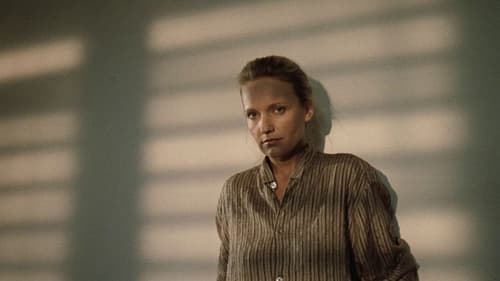
Viktor
A wonderful dark tale of coming of age in a country in transformation - then Czechoslovakia (now Slovakia) in 1990s. Against the backdrop of a regime change and general crisis of basic values, a young man is finding his way into adult life. Playing a part in a love (hate?) triangle he does not fully understand until the conclusion, he desperately tries to make sense of the unpredictable behavior of the other two main characters which is linked to the secrets lurking in their past. All this while he is not sure about his own role in a world where yesterday's truths mean nothing today. Brilliant actors in a brilliant film that even gives you a glimpse of hope at the end.

Horváth Imre
Imre Horváth and his friends gather to celebrate his wife's birthday. They are confused because of the changes in the country's politics and want Horváth to be much more active politically, but he is more concerned about his affair with his best friend's daughter.

Zorka
At a dusty crossroads in the Soviet Union villagers surrender their possessions - a horse, a samovar, a goat - to the state. The train which takes them away brings to the village a physically and mentally handicapped woman, barely able to speak. She makes herself bracelets of burrs and studies herself in a cracked and cloudy mirror. Befriended by very few, teased and tormented by many she seeks protection at a huge portrait of Stalin. "by: rosej-1"

1958. In the cell of the condemned, seven men await the signs of an approaching execution. All of them recall their pasts and envision their wish-dreams.

Jozef K.
Jancso emphasizes highly evocative and ambiguous imagery over dialog or exposition. Here he seems primarily interested in showing the painful, stunted lives of Hungary's intellectuals, who are shown as remaining silent and ineffectual during various political crises. There are several action sequences involving chases and shootouts, but since there's no clear narrative we're not sure how they relate to each other or to anything else. The film is, however, visually fascinating, with shots of police cars, horses, and naked bodies juxtaposed and extensive use of multiple video imagery.
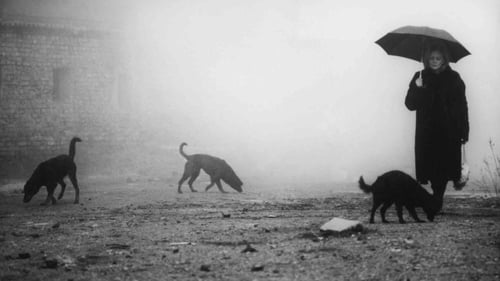
Sebestyén
'사탄 탱고'의 원작자인 라즐로 크라스나호르카이와 작업한 첫 작품으로 한 남자의 권태와 고독, 배신감에서 오는 좌절감을 우울하고 삭막한 풍경에 담아낸 흑백 영화. 퇴폐적인 매력을 지닌 카바레 가수를 사랑하게 된 카렐은 끊임없이 구애하지만 유부녀인 그녀에게 이용당할 뿐이다. 스산한 날씨,어두침침한 술집, 정처 없이 헤매는 들개는 비참하고 절실한 카렐을 상징하는 중요한 요소이다. 공간의 제약에 도전하는 듯한 다각도의 트래킹 쇼트와 원경을 담아내는 정지된 쇼트가 대비된다.
* 2005 칸영화제 프랑스문화상
(제9회 전주국제영화제)
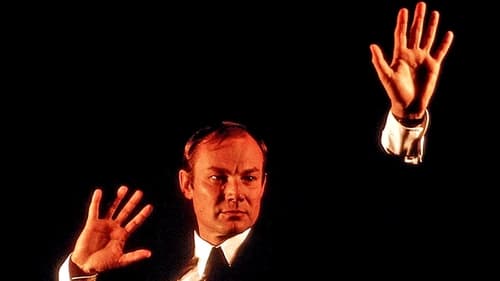
Count Trantow-Waldbach
A man's story parallels Hitler's rise. Austrian Klaus Schneider, wounded in World War I, recovers in the care of Dr. Emil Bettleheim. Bettleheim discovers that Schneider possesses powers of empathy and of clairvoyance, such that could aid suicidal patients. After the war, with one friend as his manager and another as his lover, Schneider changes his name to Eric Jan Hanussen and goes to Berlin, as a hypnotist and clairvoyant performing in halls and theaters. He always speaks the truth, which brings him to the attention of powerful Nazis. He predicts their rise (good propaganda for them) and their violence (not so good). He's in pain and at risk. What is Hanussen's future?
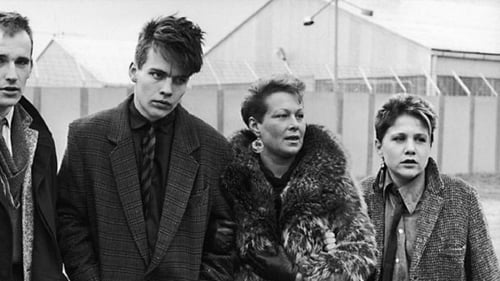
Cserhalmi György

Tölgyesi's brother-in-law
Frigyes, shortly after immigrating to New York City from Hungary, leaves his family for the pleasures and gratifications of being a street bum. But as time goes by, the appeal of this lifestyle wanes. A series of adventures with other drifters reaches a dramatic conclusion when some thugs murder one of them. This startling event forces Frigyes to come to terms with his current situation and decide whether to return to the family he abandoned.
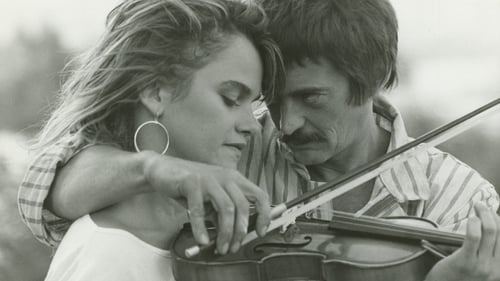
Dr. Bardócz
Zoltai is a Hungarian professor who returns home after a visit to the United States. Following a television interview, he commits suicide and leaves a note for his longtime friend Dr. Bardocz. The doctor and Zoltai's colleague Komindi join the police in investigating what drove the man to suicide.

Hódosi András
From the intrigues and slander of the branch the painter Hódosi moves out to a hamlet at Hortobágy. He gets into conflict situation as well as he cannot endure that the political and economic elite of the neigbourhood would devastate the nature conservation area with hunting and (tax evading) goose husbandry.

1629, Transylvania: Reigning prince Bethlen Gábor has Don Diego, the Spanish chronicle knight be brought to his court in order to make him record his life and deeds for posterity.

Szepessy István báró
The hero of the story that takes place at the beginning of the nineteenth century and recalls real historical personages is Akli Miklós, the court jester of Emperor Ferenc.
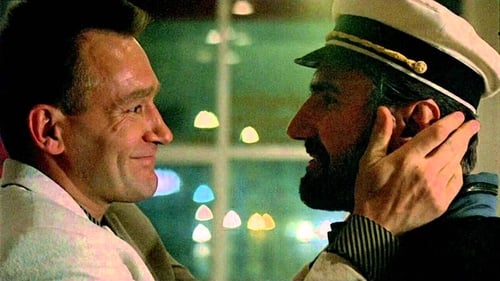
Réb
Réb went to the United States about 20 years ago and in the eighties he returns to Budapest with his teenager daughter...

1956. Bébé is a painter, but he has not worked for years. The news arriving form Paris about the death of his childhood friend, Halász Petár affects him deeply, but his reflections are continually disturbed by telephone calls: the Alliance for Fine Arts wants to purchase one of the popular self-portraits of Halász.

Alex gróf
The heroes of this story, based on real events at the end of the 1930s and during World War II, face and dismiss the illusions of intellectuals about their ability to transform society. Professor Magyary and his disciples hoped to promote the modernisation of Hungarian society through a radical reform of public administration.

Majláth Ferenc, huszárfõhadnagy
The seeming hopelessness of combatting an all-powerful government that will not tolerate political dissension is the focus of this excellent historical drama set in the mid-19th century in Hungary. In the opening scenes, Hungary has just lost its bid for independence from Austria and a Magyar officer, unable to bear the tragedy of defeat and what it means, says an affectionate good-bye to his beloved horse and then shoots the animal and himself. Two years later, Ferenc (Gyorgy Cserhalmi) is trying to eke out a living for his wife and her family -- and at the same time avoid any hint of sympathy for Hungarian independence because the Secret Police are everywhere. Just as life seems to be going well, Ferenc's former commanding officer (Lajos Oze) arrives and begins discussing revolution again -- a futile pursuit at this point in time. The next day, Ferenc is thrown into an insane asylum and everyone else is arrested as well.

Jones
A story of a young student of medicine, who arrives in a small mountain village after being accused for carrying out illegal abortion. The film reflects the moral decline of the society, where stealing in secret and making compromises against one's beliefs make up mundane reality. The filmmakers went to perhaps the furthest possible limits in terms of allowed social criticism in the 1980s. The negative picture is enhanced by its rural setting, since the Slovak village had been traditionally associated with strict morals and conservative values.

Captain Simonffy
When hunting, Zrínyi Miklós finds an Angel with a broken wing. He takes him for a heavenly message and carries him to his castle for cure. Lords and priests come to Zrínyi's court, one after the other, to see Angel. The occasion is appropriate for the ban to win them over to his plan: they should unite their forces to fight for the country's independence.

1894. The mortal remains of Lajos Kossuth are brought home from abroad, the railways are lined with people with their hats in hand, and among them stands the teenager Imre Tányér. 1910. The grown-up Imre undertakes the task to solve the question unsolved since 1848-49, i.e. the transformation of peasant life. He fights for the rights of his class, for justice, for human dignity in a society distorted, backward and built on inequality.

Vera is an engineer and a young divorcée. She is pretty, lonely, and has a boyfriend, Tamás, whom she is dating secretly on a certain day of the week at the week-end house of one of their friends, as Tamás has a family and does not intend to divorce his wife. Vera would like their relationship to be publicly acknowledged.

Macbeth
A Hungarian TV version of the play shot in just two takes.

Simon József
Two old women who happen to be pickpockets stole money from Simon, the taxi driver. The police are unable to find the thieves, so Simon decides to find them himself.

Henchman of the hunter
A tale about a little fox Vuk from the novel of the famous Hungarian writer István Fekete.

A historical drama set in the 1400s, a young man sent to Italy but is forced back after his father's mysterious death.

Fanyüvö / Vasgyúró / Kömorzsoló (voice)
A horse goddess gives birth to three powerful brothers who set out into the Underworld to save three princesses from three evil dragons and reclaim their ancestors' lost kingdom.
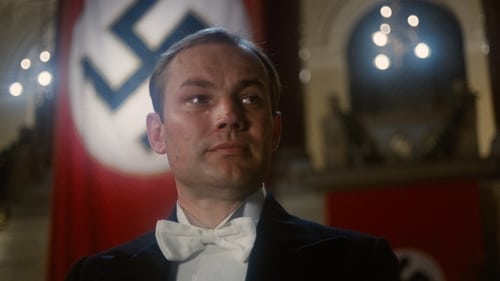
Hans Miklas
파우스트의 메피스토 연기가 전문인 연극 배우 핸드릭은 성공을 위해 수단과 방법을 가리지 않는다. 살아남기 위해 나치 정부에 아부하고 선전 놀이를 하며 온 나라에 그의 이름을 펼치기 위해 나치 당원들을 이용한다. 친구를 배신하고 아내마저 버린 그는 마침내 베를린 국립극단 총감독이 된다. 결국 엄청난 출세를 하지만 뒤늦게 정권의 꼭두각시 노릇에 불과한 자신의 처지를 자각하고 회의에 빠지는데...
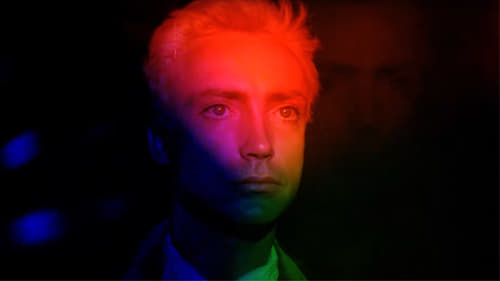
Maximilian Freiherr von Zedlitz
Narcisus and Psyche is based on a novel by Sandor Weores which was adapted by Vilmos Csaplar and director Gabor Body for a feature-length film. Borrowing the character of Psyche from mythology and placing her in Europe in the 19th century, the authors give her a "modern" life. She is an attractive young woman - and remains so throughout the film, in spite of one hardship after another. Psyche is libidinous, and her prurient interests shock her staid contemporaries.

Hafra, a néma
1852. Gáspár Noszlopy escapes from prison in order to capture the emperor, who is to visit Hungary, with his companions and force him to sign the Declaration of Independence. He is only able to find four fanatic men, as his one-time soldiers have already accepted the established order as unalterable, each of them having found a satisfactory way of life and unwilling to undertake a suicidal experiment.

Zsadányi István
Zsadányi flees from the authorities with his goddaughter, Bankós Mari, and they escape into the forest. The film then skips ahead thirty-fold years: Zsadány and Mari are now lovers, with the sound of war in the background halting their romance. The old friends of Zsadányi have joined with the Nazis, and the landowner living with his peasants in a socialist community grows distant from them. Zsadányi is held responsible for political problems in the country, and will pay with his life.
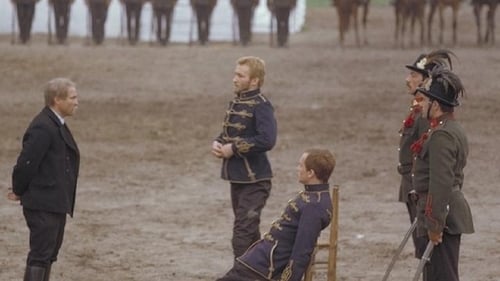
Zsadányi István
The movie portrays a peasant revolt in Hungary in the early twentieth century.
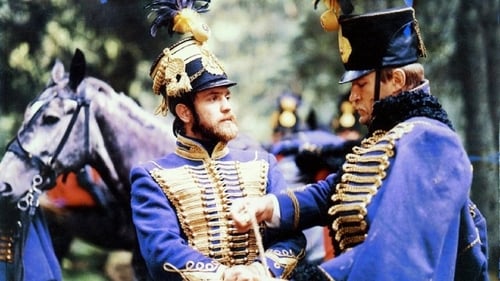
Csorgás István
The film tells the story of a regiment of Hungarian hussars stationed in Poland. The hussars, mostly ordinary men, have heard news of the uprising and wish to return to the homeland to defend the newly independent country. The Empire, on the other hand, is firmly resolved that all Hungarian troops in the imperial army should be kept as far away from the trouble spot as possible, knowing that most soldiers would be loyal to Budapest rather than Vienna.

Kelepei Jenö
A brothel in a small Hungarian town becomes the home of a medical student after his favorite working girls find out he's out of rent money. Trouble brews as they learn his mother is coming for a visit and they must transform the house.
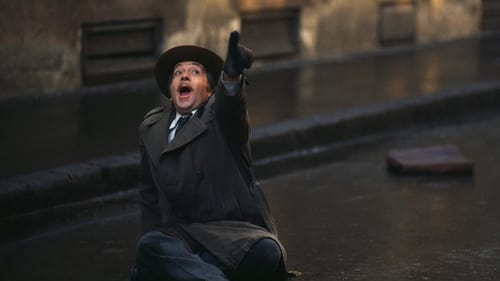
Haldokló kommunista
In Budapest in 1944; a watchmaker, a bookseller, and a carpenter are drinking in a bar with the owner when they are joined by a stranger. The watchmaker asks a hypothetical question that will change their lives.

One day Novák Erzsébet kindergarten-teacher destroys her papers, cuts her hair and closes her mouth forever. She prepares for suicide namelessly, then somewhere around Normafa she accepts being taken into an asylum.

Jeles Matyi hangja
György Szomjas’s first feature—made after a decade of short documentaries—is a bold attempt at a goulash western, set on the puszta, or Great Hungarian Plain, in 1837. Mixing Miklós Jancsó imagery and a Sergio Leone narrative, this ballad-like saga opens with image of a lone horseman on the empty plain, riding past a rude gallows. The film concerns the vengeful return of a legendary betyár (outlaw), briefly a hero to the local herdsmen who oppose the state building a canal across their grazing land. Although Szomjas works from ethnographic records and archival material, it is hardly surprising that this violent, primitivist film would be more popular with Hungarian audiences than critics. Replete with young guns, crooked sheriffs, tavern brawlers and hardbitten plug-uglies, this widescreen film is strikingly shot by Elémer Ragályi (cinematographer for most of Gyula Gazdag’s films)—a feast of loamy, autumnal colors.

Kaszperek Mihály / Csernyiczky Mihály
A ghost is haunting Lubló: Kaszparek Mihály, trader of wines, does not refrain from haunting his native town even in broad daylight. He rides his horse sitting backwards, pays with false gold and pays frequent visits to his widowed wife, who is far from being appalled by the caresses of her dead husband.

Ambrus András
While awaiting his release from the Soviet detention camp he is being held in, a half-starved refugee (Andras Ambrus) finds that an error has been made and his name is not on the to-be-released list. It is then that he is forced to assume the identity of a dead man whose name is on the list. Ambrus at first refuses, but because he was an orphan and cannot produce evidence of his true identity, he has no other choice. However, when he returns to the outer world and the community he was raised in, he is greeted with suspicion. When he tries to claim his part-ownership of a farm from his adopted uncle, he is refused and beaten by farmhands the uncle sets on him.

This lavishly spectacular film focuses on the character of Lorinc Parcen Nagy from the 1200-page Tibor Déry novel interwoven with numerous autobiographical elements. Lorinc Parcen Nagy is the offspring of an upper middle class family, whose life is marked by two violent deaths: the suicide of his father and the slaughter of an innocent worker. He breaks with his family and his mother in disgust; she is of weak character, a person who abandoned her own husband. He is also unable to discover the right tone with his colleagues and his lover who is an illegal party worker.

The film takes place at the end of 1946. Rumours are spread that the food supply will not arrive for it has been robbed. Workers of the metal factory go on strike.
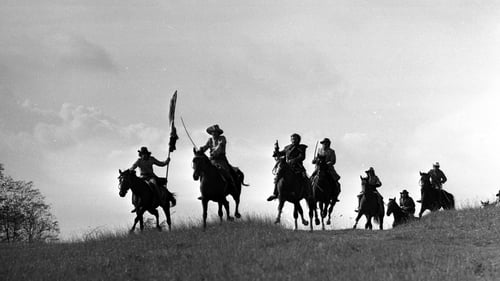
Vereczky Ádám
The film depicts the lives of veterans of the 1848 Hungarian Revolution in the American Civil War, based in part on an Ambrose Bierce story. The whole film was re-edited using his own method called "light editing" in order to make it resemble a damaged silent film from the late 1800s.

This film, set at the beginning of the 17th century, is the first East-European "Eastern". Bocskai István orders the free Heyducks to shepherd a huge herd of cattle through the country torn to three parts, to the Dalmatian coast, where he can get weapons in exchange, for fighting the Austrians.
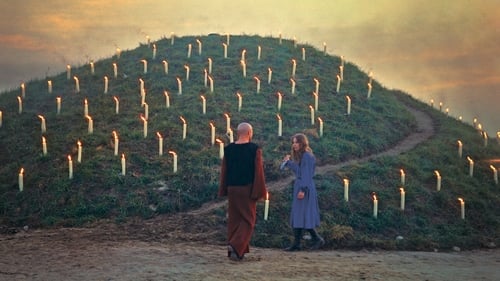
Oresztész
It has been fifteen years since the death of her father, Agamemnon, and Elektra still burns with hatred for Aegisztosz, who conspired with Elektra's mother to kill him.
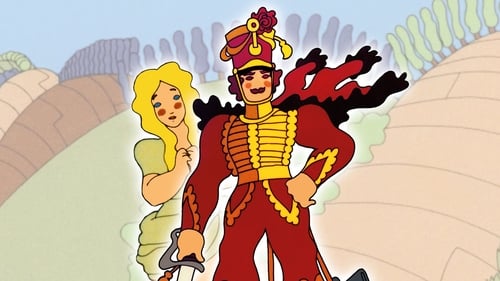
Jancsi (voice)
A traditional Hungarian poetic fairytale that describes the epic adventures of a young shepherd through love, war, magic and death.
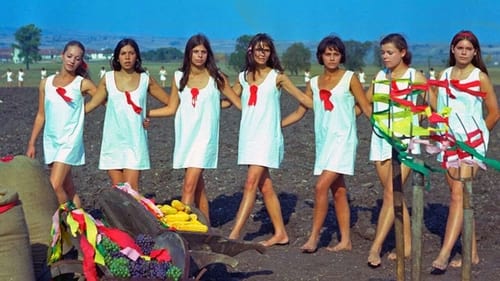
Socialist
개성 강한 작가 중에서도 가장 독창적인 작가로 평가받는 미끌로쉬 얀초의 작품으로 1972년 칸 영화제 감독상을 수상한 작품이다. 붉은 시편은 단지 28개의 쇼트만으로 구성되어져 있는데 그의 작품은 발레를 보는 듯한 인물들의 움직임과 역동적인 카메라를 워크, 탁월한 색채 감각이 빚어내는 생동감 넘치는 이미지들이 특징이다.

Ambrus Dani
The heroines of this lyric comedy full of burlesque elements are two girls from a village who get totally engrossed in their day-dreaming. Ida and Rozi escape to the city to catch husbands for themselves.

Vitatkozó
After the World War I, enthusiastic young people found the intellectual group of Hungarian Communist Party. Their aim is to propagate the communist ideology to the people and get the workers on their side. They have fierce discussions on the new ideas, though their movement is not very successful. They clash with their opposition, attempt to lead people to the Red Army, but without success.

Andi, Ágnes bátyja
The film take place in Budapest, in the end of The World War II, telling the story of a young Communist who escaped from prison. The boy tries to revitalise his contact with the movement, but he is told to be quiet and wait.


































































